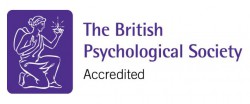Expressive and Receptive Language Disorders
Expressive – Receptive Language Disorders are a type of language disorder in which an individual has difficulty understanding spoken, and sometimes also written, language. These disorders are related to an individual’s inability to efficiently process language. When an individual has difficulty with using both spoken and written language, then a Receptive-Expressive Language Disorder may be diagnosed.
People with receptive language disorders often have difficulty with speech and organizing their thoughts. This creates problems in communicating verbally with others and in organising their thoughts on paper.
Symptoms of Receptive Language Disorders will vary from individual to individual, though some common symptoms may be observed. Often people with such a disorder will not appear to hear others when they are spoken to, show little attention when books are read aloud, struggle to understand complicated sentences, struggle to understand spoken instructions and show general language skills that are inappropriate with their ages.
Receptive Language Disorders encompasses a wide variety of different conditions. The most common are Central Auditory Processing Disorders (CAPD), Comprehension Deficit, Aphasia and delayed language/speech. Autistic individuals and individuals with Pervasive Developmental Disorder (PDD) are also said to have Receptive Language Disorders. Treatments for Receptive Language Disorders depend upon an individual’s diagnosis. Speech-language therapy is usually undertaken and can be very effective.
For more information about expressive-receptive language disorders, look at healthline.com/health/mixed-receptive-expressive-language-disorder#Overview 1



